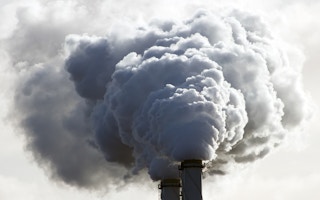Remember not so long ago when the IMF was treated with deep suspicion by the environmental community? Times are changing. The International Monetary Fund is now producing some important analyses directed at the world’s economic and financial leaders that could make the world a whole lot greener – and a whole lot more economically efficient.
To continue reading, subscribe to Eco‑Business.
There's something for everyone. We offer a range of subscription plans.
- Access our stories and receive our Insights Weekly newsletter with the free EB Member plan.
- Unlock unlimited access to our content and archive with EB Circle.
- Publish your content with EB Premium.
Yesterday at the Center for Global Development, Christine Lagarde, Managing Director of the IMF, launched the latest book in the series on what good fiscal policy should look like in a world of environmental externalities. I had the pleasure of commenting on the book in response.
The exam questions for the book, Getting Energy Prices Right, include the following:
- How should energy prices be adjusted to reflect the fact that energy consumption today is leading to more than 3 million deaths from pollution each year?
- What is the optimal energy taxation in a context in which scientists tell us we’re heading for a 3-4 degree Celsius rise in average world temperatures this century?
- How would the answer change if we factor in traffic congestion, which lowers urban GDP by 5 percent in many cities?
For nearly a century, economists have understood that taxes and charges can be very effective in addressing externalities. So what’s new? It is the fact that the premier financial institution in the world is making the case, strongly and unequivocally, that this is an issue of good fiscal policy. Ministers of finance and economics should design their tax systems skillfully so as to tax bad things, like pollution and congestion, rather than good things like work and profit. Not to do so is plain bad economics.
Coal is the most damaging fuel, and yet almost no countries tax it at all, and some actively subsidize it. The IMF finds that factoring in externalities would suggest a tax of at least 50 percent at today’s prices. For gas, the optimal tax is smaller, but still 40 percent. Many countries already tax motor fuels, but in three-quarters of the countries analyzed, these taxes are insufficient to address the externalities from congestion and road accidents.
What about the impact of these proposals? Sound fiscal policy – in which negative externalities are internalized through the tax system — would cut world deaths from air pollution by 63 percent, and carbon emissions by 23 percent, and would raise 2.6 percent of GDP in revenue. Wow!
So, why not?
“
Taking action calls for brave and skilled political leaders, of which there are too few. Experience of other “revolutions,” such as the massive transition away from dirigiste state controls and towards more open economies during the 1980s and 1990s, suggests that a tipping point is likely to be crossed when the political riskiness of action is lowered.
The anti-tax lobby, of course, opposes these measures on grounds that it is “big government” overreach. But this is a red herring. Such proposals can be totally tax neutral, being offset by reductions in taxation on labor or any other tax base. Free marketeers should applaud such a move, since it would lower taxes that are distortionary, while increasing taxes where they are not. Overall economic efficiency would be improved, leading to more long-term growth.
A much more serious objection relates to the possible impact on the poor, who may benefit from today’s low energy prices. Two points need to be made here. First, the vast majority of the benefits of low energy prices accrue to the better off, not the poor. Take coal, which is used mainly for power generation. The poor are often among the 1.2 billion who don’t have access to electricity, so they don’t benefit. They are the ones who suffer most from the pollution caused by coal. The same applies to gas. Nonetheless, it is important to note that poor people are often unable to pay for higher energy prices, and compensation measures must be found. Here there’s good news. A huge amount has been learned in the past decade concerning how to use cash transfers to support poor citizens. Countries like Indonesia, and even Iran, have shown how some of the revenues from increased energy prices can be used to compensate the poor, with an overall net improvement in wellbeing. Ideally, as well, some of the revenues from higher prices should be used to help bring clean energy to the poor who are currently unserved.
A tipping point could be closer than we think
Taking action calls for brave and skilled political leaders, of which there are too few. Experience of other “revolutions,” such as the massive transition away from dirigiste state controls and towards more open economies during the 1980s and 1990s, suggests that a tipping point is likely to be crossed when the political riskiness of action is lowered. This is facilitated by the accumulation of strong evidence showing the benefits of change, proven examples of success, and a groundswell of political momentum, especially among like-minded countries.
It’s possible that such a tipping point may be closer than we think. The coming 18 months certainly provide an unusual opportunity for building political support. The UN Heads of State Summit in September this year, the climate meetings in Lima in December, the Financing for Development Conference in Addis Ababa next summer, and the Paris Climate Conference at the end of 2015, should help focus the minds of leaders on their responsibilities to act to address environmental damage that is undermining prosperity.
Let’s remind them that pricing energy right is plain good economics.
Dr. Andrew Steer is the President and CEO of the World Resources Institute. This post originally appeared on the World Resources Institute’s Insights blog.











